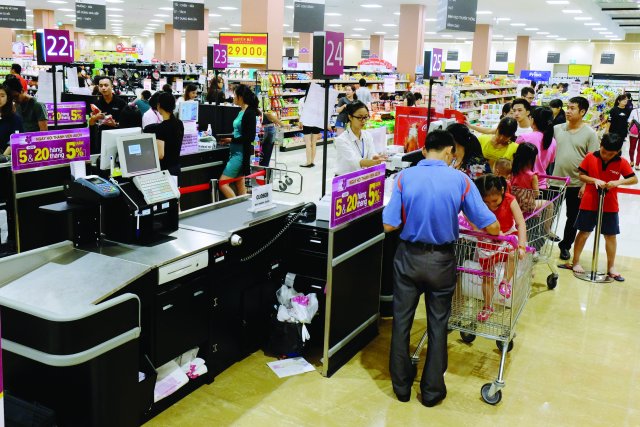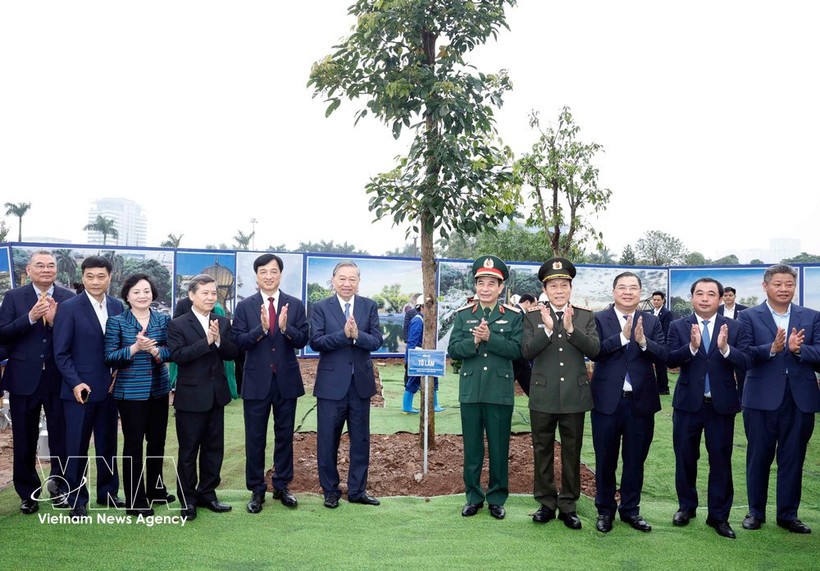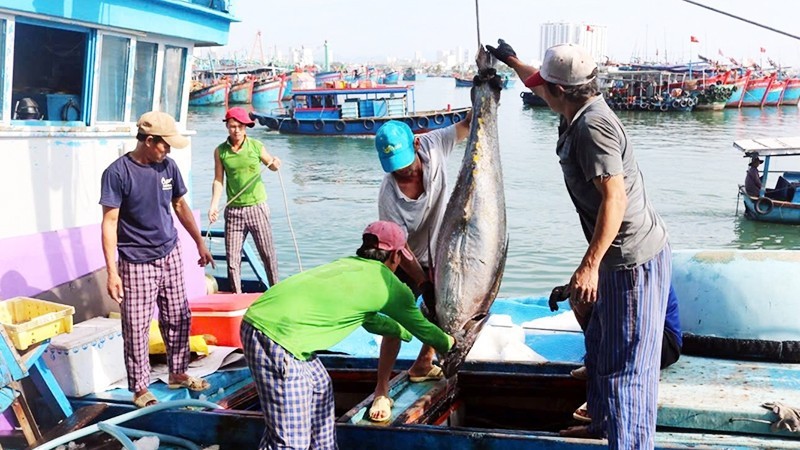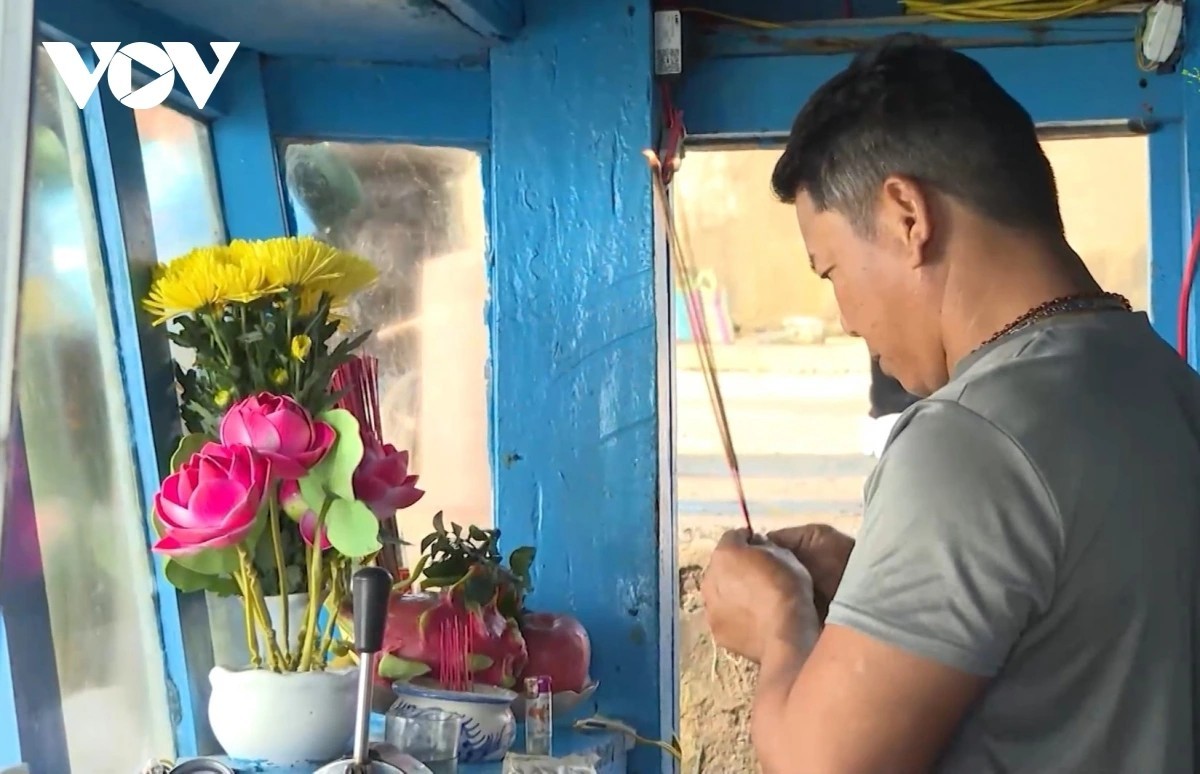Japanese retailers keen on Vietnam
Japanese conglomerate the Sumitomo Corporation and Vietnam’s BRG Group announced in December the official opening of their first partnered supermarket, FujiMart, in Hanoi’s Dong Da district. Following leading retailers from Japan like Aeon Mall, Takashimaya, and 7-Eleven, FujiMart is the latest from the country to step into Vietnam’s emerging retail market. The influx of famous retailers from Japan has intensified the race in Vietnam’s service sector, especially the grocery retail business.
 |
New shopping experience
Nielsen’s latest “Global Shopper Trend” report released in November found that modern trade saw impressive momentum in 2018, though traditional trade, including wet markets, still dominates in Vietnam. The number of convenience stores has nearly quadrupled since 2012 and minimarts comprised the most store openings in first nine months of 2018. The report also revealed that while Vietnamese shoppers have cut their visits to wet markets, they go to convenience stores, minimarts, and traditional grocery stores more often.
To capture this trend and understand Vietnamese consumer habits, with more than 50 years of experience in supermarket chain operations and business, Sumitomo followed its compatriots in setting up its first grocery retail joint venture in Vietnam, which is also the first FujiMart in Southeast Asia. “We will create a brand-new model that Vietnamese customers have never experienced, by transplanting Japanese supermarket know-how as much as possible,” said Mr. Keisuke Hitotsumatsu, General Director of FujiMart Vietnam.
At the same time, FujiMart will treasure Vietnam’s food culture and communications style, because FujiMart is a supermarket chain for Vietnamese people. “Seeing is believing,” he said. “We welcome all customers. No matter how life changes, most consumers still enjoy shopping, where they can see, touch, or even taste products and immerse themselves in a bustling atmosphere. In Japan, Sumitomo’s supermarket chain is known for product freshness and good services.”
Meanwhile, fellow Japanese retail giant Aeon Mall’s strategy is to put customers first by listening to them and mobilizing every staff member’s energy to create new value through a dynamic approach that transforms daily life. “To win customer satisfaction and maximize their benefits, Aeon Vietnam aims to focus on developing perse, high-quality products with reasonable prices, especially quality Japanese goods,” said Mr. Nishitohge Yasuo, General Director of Aeon Vietnam. “We also offer a ‘one-stop shopping’ model, including shopping, entertainment, education, finance, services, and so on.”
Since opening its first shopping mall in 2014, Aeon Mall has expanded its business in Vietnam with not only shopping malls and general merchandise stores (GMS) but also specialty stores and e-commerce, in order to persify shopping channels and provide more convenience.
Despite unsuccessful deals between Aeon and local partners Fivimart and Citimart recently, Aeon Mall’s sales in 2018 still achieved growth of 113 per cent against 2017, especially in pisions such as perishable, kids’ products, home fashion, daily necessities, and dairy. “Five years on, we have launched four GMS, 21 specialty stores, and one e-commerce page,” Mr. Yasuo told VET. “We target to speed up the expansion of stores in all business segments throughout Vietnam in the upcoming years.”
In general, one core value added Japanese retailers have brought to Vietnam is the Japanese supermarket model, in which cooked food is made in-store, with store-wide temperatures controlled, according to Mr. Giles Cooper, Co-Director of Duane Morris Vietnam. “This technology helps keep food fresh and always ready for sale and consumption,” he said. “Moreover, Japanese retailers have also been incorporating Japanese-style merchandising and store operations strategies as well as store layout/design to create a more comfortable and exciting shopping experience for Vietnamese customers.”
Giants compete
In Vietnam as well as in other countries in which Aeon is present, it needs large land areas, Mr. Yasuo noted. “But land funds in key cities are pretty limited and land is also expensive,” he said. “That is one key challenge we have faced when developing and expanding our business in Vietnam. To develop the store chain, infrastructure and technical networks are also very important to us.”
Targeting to become the No. 1 retailer in Vietnam, Aeon plans to open more shopping malls in the upcoming years in response to growing customer demand, particularly in the retail business. “We tentatively plan to launch two malls in the next two years and over 15 specialty stores nationwide this year,” he revealed. “We will also focus more on Aeon member cards, to increase the benefits and win the loyalty of customers.”
Newcomer FujiMart will open three stores to 2021 on a trial basis. “We will then consider expanding the chain,” Mr. Hitotsumatsu said. “To bring the best quality products to Vietnamese consumers, we decided to blend Vietnamese food culture with Japanese quality services. BRG and Sumitomo are continuously discussing how to deepen mutual understanding and realize the concept in this first FujiMart store.”
He also suggested that improvements to logistics are necessary. In order to guarantee food safety, improvements in cold chain logistics are required, especially for refrigerated and frozen products. “This is a difficult matter to deal with and we believe that improvements can only be done by all related industries, such as retailers, manufacturers, and logistics companies.”
Moreover, Mr. Cooper from Duane Morris said that major challenges facing Japanese retail investors include high rents and too much red tape, especially in the central districts of major cities. According to the “Vietnam’s Distribution and Retail Channels 2018” research by the EU-Vietnam Business Network (EVBN), supermarkets can take five or more years to break even in Vietnam; double the time needed in Indonesia, Malaysia, and Singapore. Convenience stores also encounter similar problems with land and capital.
With respect to red tape, he went on, foreign investors in retail distribution face much greater obstacles compared to domestic players. They are required to obtain more permits and even in some cases satisfy so-called “economic needs tests” to open outlets. This is not a level playing field and introduces an undesirable level of uncertainty into the market place. It is also difficult for Japanese investors to operate in rural areas, since the modern retail market has not yet been developed there.
Notably, Japanese retailers’ biggest local competitor, Vietnam’s largest privately-run conglomerate Vingroup, set a new record in Vietnam’s as well as the world’s retail sector by opening a total of 117 VinMart+ convenience stores nationwide on the last day of 2018, the group said in a statement. This mass opening increased the total number of VinMart+ stores in Vietnam to 1,700, cementing its place as the top retailer in the country. The group previously completed the acquisition of the supermarket chain Fivimart. Vingroup’s subsidiary, VinCommerce, targets to have 200 VinMart supermarkets and 4,000 VinMart+ convenience stores by 2020.
Market prospects
Vietnam’s retail grocery market has tremendous potential for growth and the country will become among the top three fastest-growing markets in Asia over the next five years, with annual growth forecast at 10.3 per cent to 2023, according to Ms. Soo-Eng Tan, Senior Retail Analyst at IGD Asia. “With about 90 per cent of grocery growth coming through traditional trade formats such as wet markets, hawker stalls, and shophouses, we are seeing growth across all modern trade retail channels, which is attracting many foreign investors,” she said.
The Ministry of Industry and Trade also forecasts that annual growth (excluding the price factor) in total revenue from the retail sales of goods and services for the period from now to 2020 will grow by an average of 13 per cent per year and 14 per cent in 2021-2025, reaching $255.5 billion by 2020 and over $484.6 billion by 2025.
Being in the Top 5 most-competitive retail markets, Vietnam has been an attractive destination for major retailers from around the world, including Aeon, according to Mr. Yasuo. “The potential of the market and development factors match Aeon’s business strategy, such as the trend towards developing shopping centers in suburbs forming quite clearly, and the tendency to focus on developing a ‘one-stop shopping’ model because consumers are increasingly spending more on F&B and entertainment activities at shopping mall besides merely shopping,” he said.
Despite the retail market being very competitive, demand in Vietnam’s retail market is growing in the double digits. “We recognize this trend will continue as the country’s economic prospects are very positive, raising living standards every day,” said Mr. Hitotsumatsu. “Furthermore, the food retail market is about to undergo a major transformation period. Growing interest in food safety and trust among Vietnamese people may cause a transition from traditional wet markets to modernized supermarkets.”
VNF ( Vneconomictimes )
Most read
Recommended
 Economy
Economy
India’s leap, from back office to global brain trust
 Economy
Economy
The billions given to charity by ordinary Indians every year
 Economy
Economy







